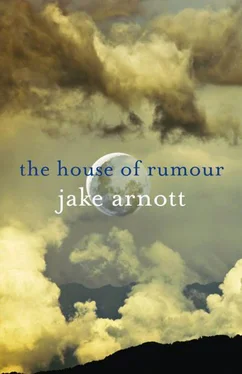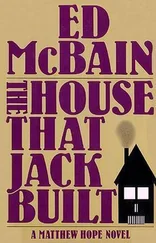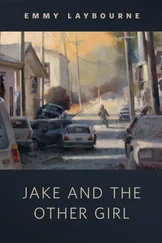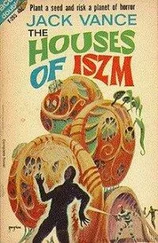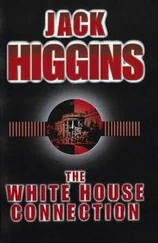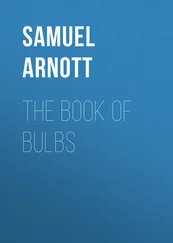Saturday, 29 March 1941
Harold arrived from London at lunchtime. Much talk about Vanessa Bell’s daughter Angelica now living with Bunny Garnett. Given that Bunny once had an affair with Angelica’s father, the situation seems rather complicated. Inevitably the conversation moved to Virginia W. Vanessa had apparently mentioned on her last visit to Sissinghurst that she feared her sister was becoming ill again & on the verge of a nervous breakdown. ‘But she was fine when I last saw her,’ Vita said. ‘And I had a jolly letter from her only last week.’
Harold has spent all week at the Min. of Information, keeping quiet about British & Commonwealth troops landing in Greece. He is confident of the long term but only if we can hang on. His worst fear is that we might get so worn down by foreign campaigns that we keep losing & will be so starved out by the bombers & U-boats at home that we might be forced to accept terms. K vehement that we must carry on the war. Funny, she used to be such a committed pacifist. All those years we spent being for peace & now so determinedly in favour of fighting.
We talked of this paradox on the train back to town. It was the twisted minds of men that got us into this mess, the cult of the male that made fascism possible. And yet we now have to watch our men fight with no power of our own. How do we fight? With our minds, of course, with our imagination that might realise an alternative in the future. K declared that she was tired of this mental struggle, tired of writing. She wants to do something practical, until the war is over at least. She is v. sensitive to any collective feelings of despair, the allusions to suicide & madness. ‘I can imagine giving up for good,’ she told me with a sad smile, ‘letting the current pull one under, the water closing above.’
Sunday, 30 March 1941
An air raid this evening (the first one we’ve witnessed this time in London). Talk has been that the Luftwaffe have been busy pounding the provinces & the capital has been quiet for the past week — well, they’re back again. Made our way to a public shelter. V. gloomy with frightful stench of humanity & carbolic. We heard a strange groaning from a darkened corner & at first thought someone had been taken ill. Soon realised that it was a couple having sexual relations. Strange how plaintive & mournful the act sounds when overheard. All-clear sounded at 4 a.m.
Monday, 31 March 1941
To Gollancz for this meeting with the intelligence officer, a certain Commander Fleming. K insisted that I be present so we both waited in a room that Victor had made ready. Both v. nervous but from the outset this interview had all the makings of a delightful farce with themes of mistaken identity & gender transformation that could have come straight from K’s fiction. Commander Fleming entered, expecting presumably to meet a male author, only to be confronted by not one but two women. He quickly realised something was afoot & for a moment was clearly flustered. Then when he finally asked which one of us was Murray Constantine, I was tempted to add another twist to the deception & confess to being him myself but K spoke out first. ‘Surely you must be used to cover names in your line of work,’ I said after K had identified herself.
‘Of course,’ agreed Fleming then turned to K & asked: ‘But why a man’s name?’
K replied that at first she reasoned that male authors are always taken more seriously than female ones & added that she always felt that ‘the writer is essentially androgynous’. The commander looked mildly shocked at this. K went on to explain that also, since the Spanish war & all the events since, it seemed wise to continue to use a pseudonym.
‘Well, you certainly offer a harsh critique of fascism,’ he concurred & then went on to talk about Swastika Night , calling it ‘astonishing’ & praising K for her grasp of ‘ideology & geopolitics’. I mentioned our past friendship with Frederick Voigt, who had been diplomatic correspondent to Germany for the Manchester Guardian when Hitler came to power, & also pointing out that he was now working for some intelligence dept. Fleming made a note of this but now seemed concerned with specific details in K’s book. He asked about the use of the name Hess for one of the characters — the ‘Knight’ in the story & a reference to this man being a descendant of Rudolf Hess, the Deputy Führer.
‘It’s set in the future,’ K explained.
‘Yes, but was there any reason why you chose Hess out of the entire Nazi inner circle to provide the ancestor for your character?’
‘I call him von Hess, actually.’
‘Well, this Hess, or von Hess of the future, suddenly leaves the inner circle of the Nazi Party and flees to Scotland. What inspired you to write that?’ K shrugged & Fleming went on: ‘All I want to know is, did you get the idea from anybody else?’
‘No. I mean, all of my stories come from somewhere else. I’m not sure where. They visit me.’
‘Like a premonition?’ the man asked.
‘Perhaps. Though the word premonition always seems a little hopeless. I mean, we can never know what we predict until it happens.’
‘Indeed,’ Fleming agreed, looking rather intense and intrigued.
I added that K’s creativity was much like tuning in to some radio wave, that the writer in her was like an alien being. He then asked about the process of writing. ‘Why are you interested?’ K retorted. ‘Are you working on something yourself?’ At which the man looked rather sheepish.
‘Do you discuss it, with your, um—’ He nodded at me, clearly unsure of our relationship.
I fully expected K to describe me as her ‘companion’ but instead she reached out, took my hand & declared: ‘With my lover, you mean? Oh dear, that does rather put us on the Gestapo list, doesn’t it?’
The commander was completely taken aback by this & he struggled to regain his composure, forcing a smile & nervously flicking at a stray curl of hair at his brow. One noticed for the first time how handsome he was. Men can be quite charming when they drop their guard. He brought the interview to a close & assured us that everything said in the interview was in strict confidence & implored us not to talk of it to anyone else. And that was that. After he had left we said our goodbyes to Victor & got a taxi to Paddington.
We found a corner seat in a packed carriage on the train home. ‘Back to our lives as eccentric country gentlewomen,’ K joked. I told her that I was glad she had said what she did. ‘About being lovers?’ she rejoined. ‘Well, I don’t suppose we should shout it from the rooftops too often.’
Thursday, 3 April 1941
Short report in The Times this morning: ‘We announce with regret that it now must be presumed that Mrs Leonard Woolf (Virginia Woolf, the novelist and essayist), who has been missing since last Friday, has been drowned in the Sussex Ouse at Rodmell, near Lewes.’ It seems clear that she took her own life. Terrible sense of shock & grief. Well, Bloomsbury really is blown to bits now. And after all the past week’s talk of suicide there’s an irrational feeling of complicity. K feels certain that Virginia was in some sense a victim of a collective despair and says that she felt some kind of premonition. She points out that it might well have happened that afternoon at Sissinghurst when she had her ‘drowning dream’.
‘I have been reading today of the deaths of the Soviet cosmonauts,’ Hess remembered telling the American commandant in the garden at Spandau in the summer of 1971. ‘As I have been studying space travel now with the help of NASA for so many months, I do have some ideas on this.’
Читать дальше
